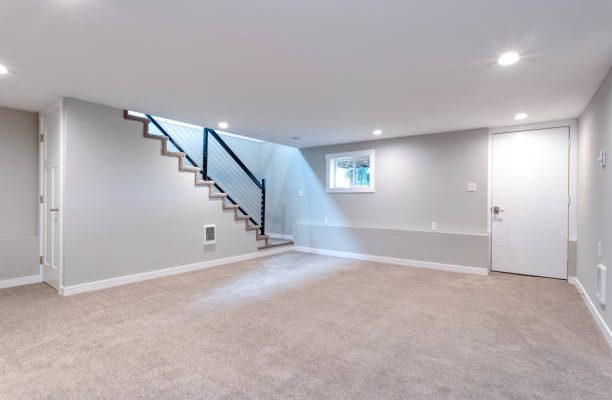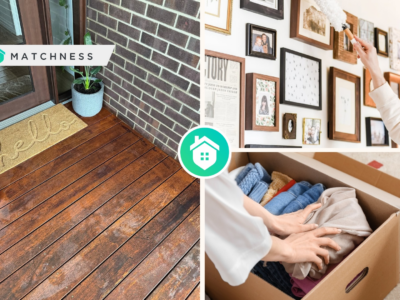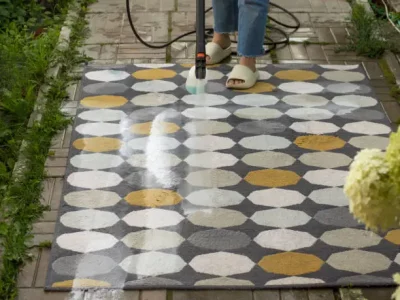Any home would benefit from having a basement as it provides more space for living spaces, storage, and entertainment. But water damage can also occur in basements, posing a health risk and necessitating expensive repairs. To keep your house and possessions safe from dampness and leaks, you must waterproof your basement. Here are five suggestions for successfully waterproofing the basement of your house:
Ensure Proper Drainage Around Your Home:
Ensuring adequate drainage around the base of your house is a crucial step in waterproofing your basement. Inadequate drainage can cause water to collect around the foundation, raising the possibility of leaks and basement moisture seepage. Install gutter guards to avoid blockages, lengthen downspouts out from the foundation, and make sure the land slopes away from the residence to promote drainage. You can also install an exterior basement stairwell drain if you have an elevated base. Rainwater must be appropriately diverted away from your home’s foundation in order to keep the basement dry and stop water infiltration. By putting these drainage upgrades into place, you may drastically lower the risk of water-related problems in your basement, protecting the foundation or structural integrity of your house in the long run.
Seal Foundation Cracks and Gaps:
Water may flow into your home’s basement through even tiny foundational flaws and gaps. Look for any symptoms of cracks or holes in the foundation’s walls and floor, then cover them with the proper waterproofing sealant. Consider employing epoxy or hydraulic cement injections to cover off bigger fractures or gaps in order to stop more water penetration and establish a watertight seal. By taking preventative action to fix foundation gaps and cracks, you may lower the likelihood of water seeping in and shield your basement from water damage. You may avoid expensive repairs and protect your basement from water-related problems by taking care of these foundational weaknesses.
Install a Sump Pump:
Any basement waterproofing solution must include a sump pump, especially in locations with high groundwater levels or a history of floods. Water in the basement is efficiently drained by a sump pump, which gathers it in a sump pit and pumps it out of the foundation. Provide a dependable sump pump with a backup battery system so that it may continue even when the power goes out. A working sump pump is essential for controlling water levels and preventing basement flooding, giving homeowners peace of mind in the case of heavy rain or peacemaker seepage. Purchasing a high-quality sump pump will reduce the likelihood of mold development and structural problems while shielding your basement from water damage.
Waterproof Basement Walls and Floors:
An additional layer of defense against moisture and leaks can be added to the basement floors and walls by using a membrane that waterproofs or sealants. Paints, varnishes, and sealants are examples of waterproofing solutions that can aid in preventing water seepage and the formation of mold. For best results, make sure you carefully follow the manufacturer’s directions and apply the water-proofing solution to dry, clean surfaces. Investing in waterproofing solutions for the flooring and walls of your basement can assist in extending its life and provide a barrier to water incursion. You may prevent water-related damage to your house and create a dry, comfortable living environment by waterproofing the walls and floors of your basement.
Improve Ventilation and Dehumidification:
To maintain ideal basement humidity levels and avoid moisture accumulation, adequate ventilation and dehumidifying are crucial. Install exhaust fans or vents to increase airflow and lower humidity levels. To further eliminate surplus moisture from the air and keep the basement dry and pleasant, think about installing a dehumidifier. In order to avoid mold development and musty odors and to create an optimal living space for you and your family, proper air flow and dehumidification are essential. Airflow ventilation and dehumidifying techniques can help you control the moisture content of your basement and stop mold and mildew growth.
Conclusion
It’s essential to waterproof your basement if you want to prevent water damage to your house and maintain a healthy, safe living space. You can successfully protect your house against water and leaks by using these five basement waterproofing methods, maintaining the integrity and value of your property for many years to come.




















